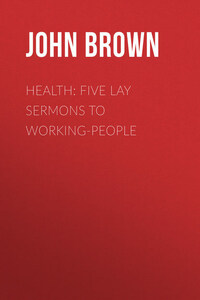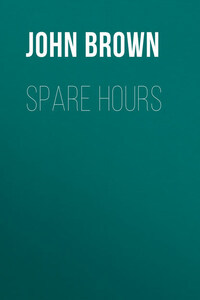THREE of these sermons were written for, and (shall I say?) preached some years ago, in one of the earliest missionary stations in Edinburgh, established by Broughton Place Congregation, and presided over at that time by the Reverend James Trench; one of the best human beings it was ever my privilege to know. He is dead; dying in and of his work, – from typhus fever caught at the bedside of one of his poor members – but he lives in the hearts of many a widow and fatherless child; and lives also, I doubt not, in the immediate vision of Him to do whose will was his meat and his drink. Given ten thousand such men, how would the crooked places be made straight, and the rough places plain, the wildernesses of city wickedness, the solitary places of sin and despair, of pain and shame, be made glad! This is what is to regenerate mankind; this is the leaven that some day is to leaven the lump.
The other two sermons were never preached, except in print; but they were composed in the same key. I say this not in defence, but in explanation. I have tried to speak to working men and women from my lay pulpit, in the same words, with the same voice, with the same thoughts I was in the habit of using when doctoring them. This is the reason of their plain speaking. There is no other way of reaching these sturdy and weather and work-beaten understandings; there is nothing fine about them outside, though they are often as white in the skin under their clothes as a duchess, and their hearts as soft and tender as Jonathan's, or as Rachel's, or our own Grizel Baillie's; but you must speak out to them, and must not be mealy-mouthed if you wish to reach their minds and affections and wills. I wish the gentlefolks could hear and could use a little more of this outspokenness; and, as old Porson said, condescend to call a spade a spade, and not a horticultural implement; five letters instead of twenty-two, and more to the purpose.
You see, my dear working friends, I am great upon sparing your strength and taking things cannily. "All very well," say you; "it is easy speaking, and saying, Take it easy; but if the pat's on the fire it maun bile." It must, but you needn't poke up the fire forever, and you may now and then set the kettle on the hob, and let it sing, instead of leaving it to burn its bottom out.
I had a friend who injured himself by overwork. One day I asked the servant if any person had called, and was told that some one had. "Who was it?" "O, it's the little gentleman that aye rins when he walks!" So I wish this age would walk more and "rin" less. A man can walk farther and longer than he can run, and it is poor saving to get out of breath. A man who lives to be seventy, and has ten children and (say) five-and-twenty grandchildren, is of more worth to the state than three men who die at thirty, it is to be hoped unmarried. However slow a coach seventy may have been, and however energetic and go-ahead the three thirties, I back the tortoise against the hares in the long run.
I am constantly seeing men who suffer, and indeed die, from living too fast; from true though not consciously immoral dissipation or scattering of their lives. Many a man is bankrupt in constitution at forty-five, and either takes out a cessio of himself to the grave, or goes on paying ten per cent for his stock-in-trade; he spends his capital instead of merely spending what he makes, or better still, laying up a purse for the days of darkness and old age. A queer man, forty years ago, – Mr. Slate, or, as he was called, Sclate, who was too clever and not clever enough, and had not wisdom to use his wit, always scheming, full of "go," but never getting on, – was stopped by his friend, Sir Walter Scott, – that wonderful friend of us all, to whom we owe Jeanie Deans and Rob Roy, Meg Merrilies and Dandie Dinmont, Jinglin' Geordie, Cuddie Headrigg, and the immortal Baillie, – one day in Princess Street. "How are ye getting on, Sclate?" "Oo, just the auld thing, Sir Walter; ma pennies a' gang on tippenny eerands." And so it is with our nervous power, with our vital capital, with the pence of life; many of them go on "tippenny eerands." We are forever getting our bills renewed, till down comes the poor and damaged concern with dropsy or consumption, blazing fever, madness, or palsy. There is a Western Banking system in living, in using our bodily organs, as well as in paper-money. But I am running off into another sermon.
Health of mind and body, next to a good conscience, is the best blessing our Maker can give us, and to no one is it more immediately valuable than to the laboring man and his wife and children; and indeed a good conscience is just moral health, the wholeness of the sense and the organ of duty; for let us never forget that there is a religion of the body, as well as, and greatly helpful of, the religion of the soul. We are to glorify God in our souls and in our bodies, for the best of all reasons,









